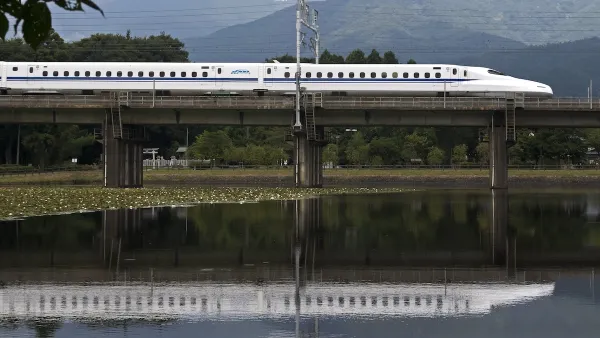Public agencies need money to finance their projects. Private investors see opportunities for a decent return. Sounds like a perfect marriage, no? Not so fast, says Laura Barrett, who outlines 6 reasons to be wary of public-private partnerships.
Although public-private partnerships are becoming popular at the local and national levels, Barrett says there's reason to be concerned about their growth. "While most Americans support the idea of building a sustainable economy and fixing decaying infrastructure, building up a national system of public-private partnerships is a whole other animal and needs to be carefully considered. The record on P3 agreements is mixed at best."
She identifies 6 troubling trends that beg consideration:
- Little or no democratic oversight
- Competition stifled
- Public sectors are saddled with the risk
- The voice of the community is missing
- Opportunities missed for community benefits
- Absence of strategic planning
FULL STORY: 6 Reasons to Be Wary of Public-Private Partnerships

Planetizen Federal Action Tracker
A weekly monitor of how Trump’s orders and actions are impacting planners and planning in America.

Vehicle-related Deaths Drop 29% in Richmond, VA
The seventh year of the city's Vision Zero strategy also cut the number of people killed in alcohol-related crashes by half.

As Trump Phases Out FEMA, Is It Time to Flee the Floodplains?
With less federal funding available for disaster relief efforts, the need to relocate at-risk communities is more urgent than ever.

LA Transit Ridership Plummets Amidst ICE Raids
LA Metro’s bus and rail lines are seeing up to 15 percent lower ridership in the wake of violent immigration arrests.

A New Texas Neighborhood is Powered by Geothermal Energy
The 7,500-home development claims to be Austin’s ‘first zero energy planned community.’

Data: In Rural America, Mobile Homes are Heat Traps
Extreme heat is often viewed as an urban problem, but rural communities face their own unique risks.
Urban Design for Planners 1: Software Tools
This six-course series explores essential urban design concepts using open source software and equips planners with the tools they need to participate fully in the urban design process.
Planning for Universal Design
Learn the tools for implementing Universal Design in planning regulations.
Heyer Gruel & Associates PA
JM Goldson LLC
Custer County Colorado
City of Camden Redevelopment Agency
City of Astoria
Transportation Research & Education Center (TREC) at Portland State University
Camden Redevelopment Agency
City of Claremont
Municipality of Princeton (NJ)





























